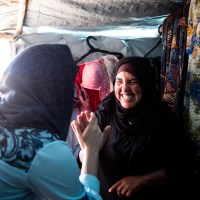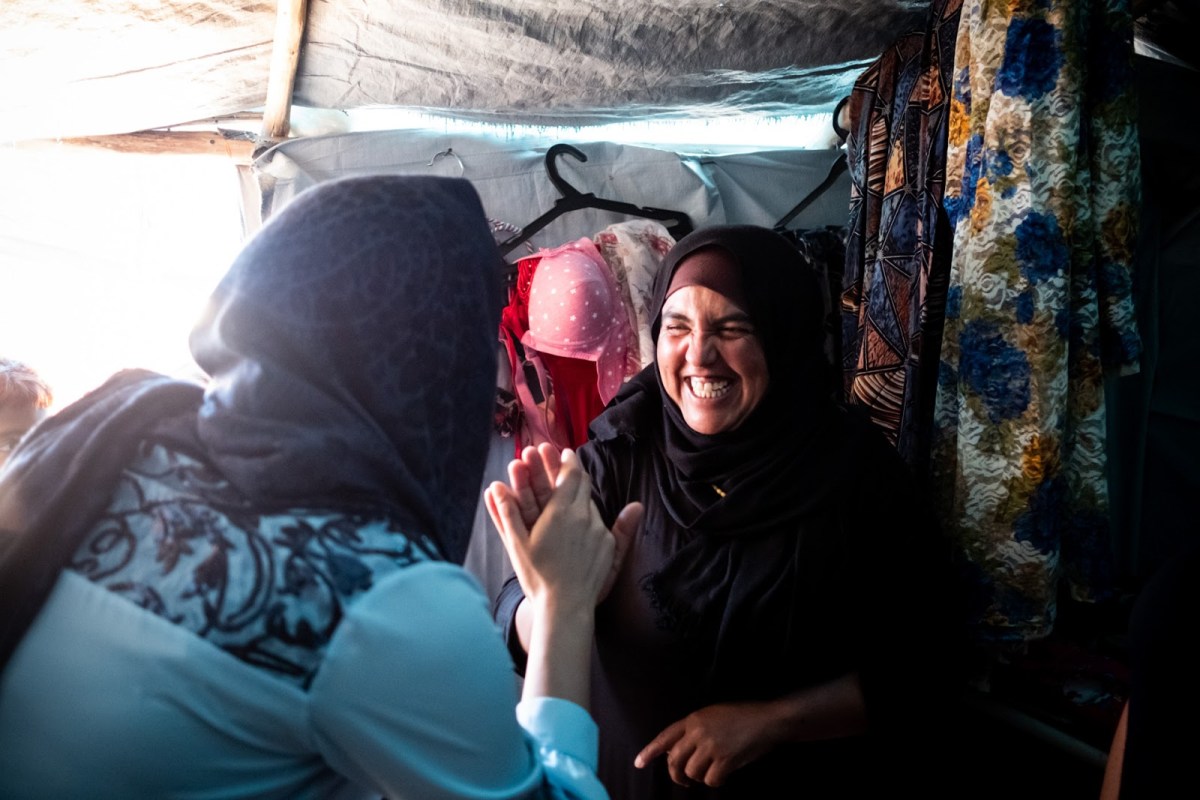Kawakep couldn’t stop beaming during the entire visit.
She was so happy and so, so animated—a complete departure from the reserved, hesitant woman we met a month ago, who said little and was spoken for by her mother-in-law.
Kawakep was already a widow living with her late husband’s family by the time ISIS destroyed her hometown. In most of Iraq, when a woman marries a man, she becomes their responsibility.
But for Kawakep, living with in-laws—in their old home and also here in camp—meant that her life was heavily curbed by the family’s rules, with little thought given to her own wishes. When we met her to discuss her future fabric business, she didn’t have a chance to speak, overshadowed by her dominant mother-in-law.
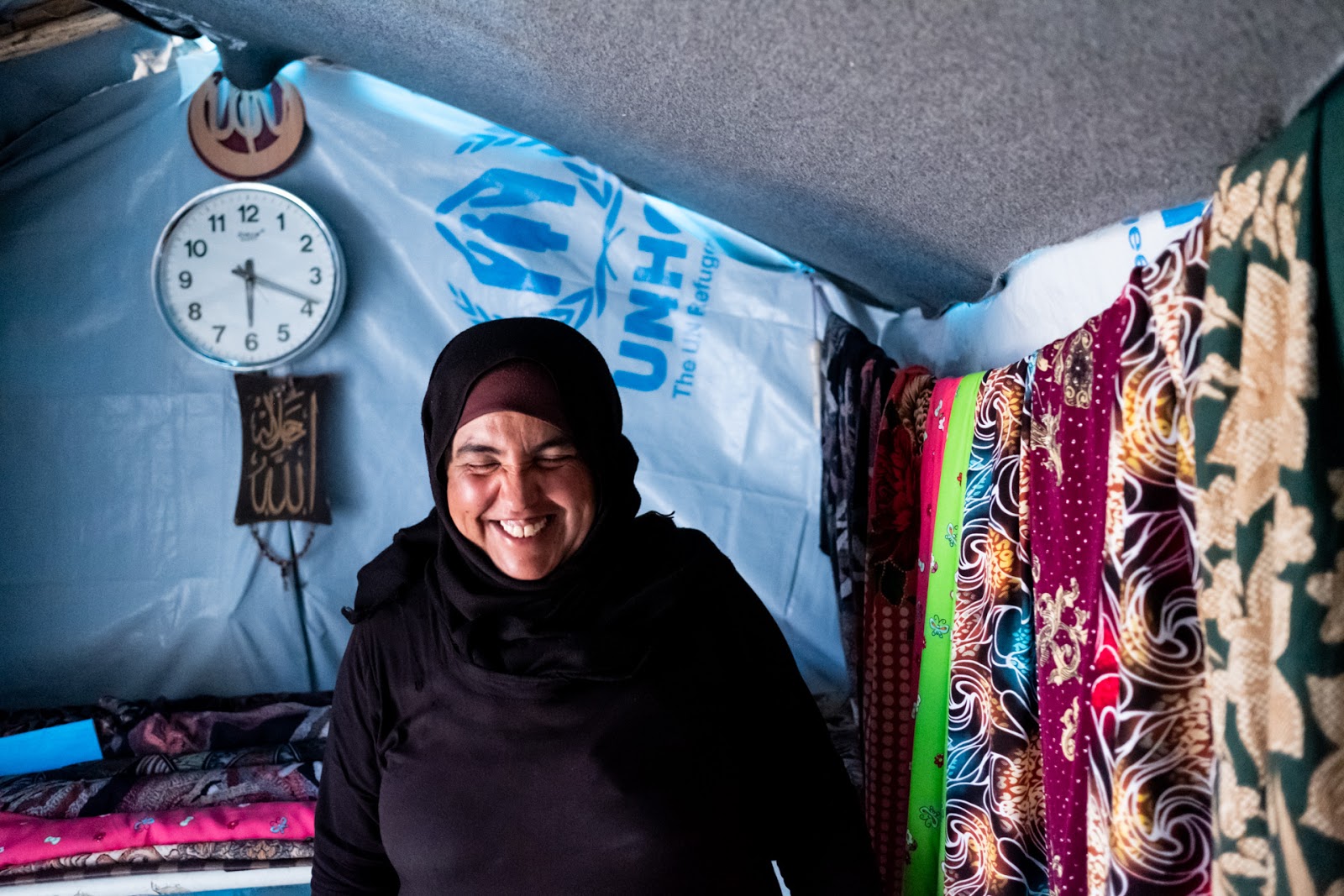
Then we went fabric shopping with her—without mom-in-law!—and saw another side of Kawakep emerging: the businesswoman who shone with pleasure, making decisions about what she wanted in her shop.
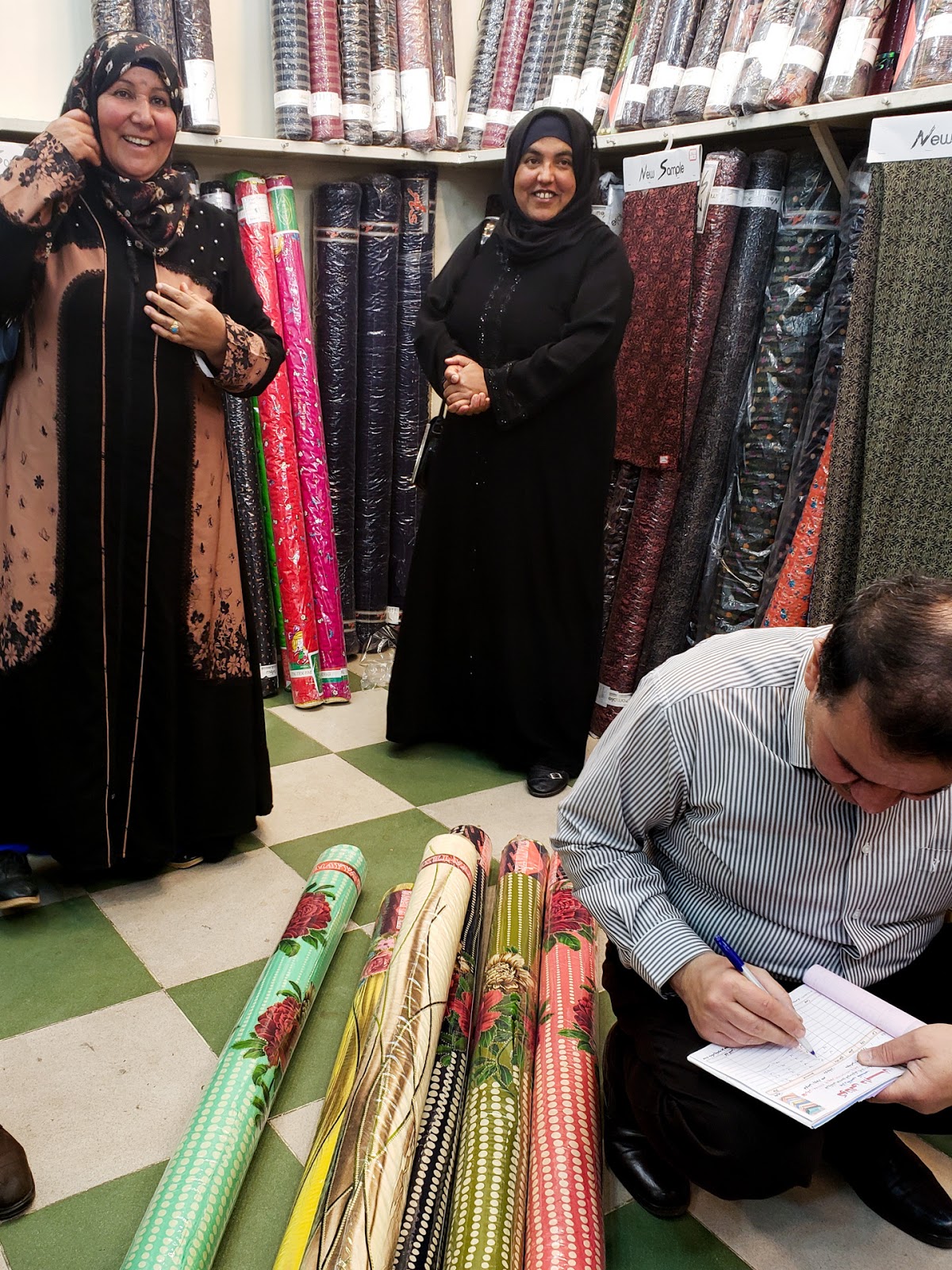
She was waiting for an opportunity to be the boss.
A few weeks later, visiting the shop in camp, we were greeted by an entirely different Kawakep.
Kawakep’s shop is a small space: about 7 by 10 feet, with the ubiquitous blue camp tarpaulin for a roof and walls. Fabrics of myriad different patterns hang neatly on lines strung between the shop’s supporting struts.
Despite its small size, Kawakep has been swamped with business from the start. In a few short weeks, she’s already expanded into selling women and children’s clothing, and can barely keep up with demand, making trips almost daily to restock her wares.
And to watch her move and talk about the shop was… just wow! Her animation while regaling us with hilarious stories about her life and her family and the stories about the shop was incredible.
Kawakep moves about her shop with an irresistible exuberance, unable to contain her laughter, infecting everyone who enters the space with that same vitality. It’s hard to believe this was the same quiet, reticent woman we first sat down with a few weeks ago.
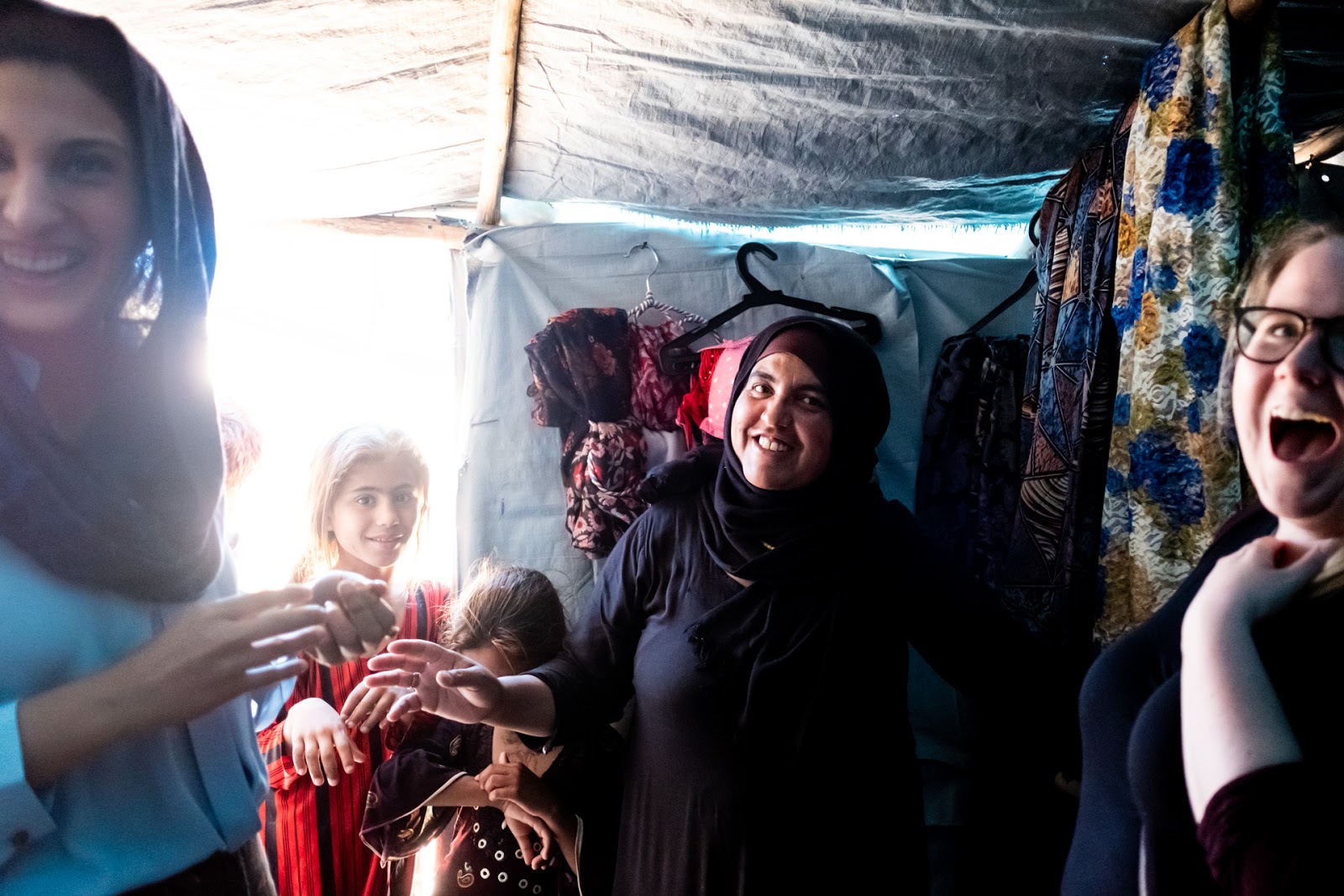
 She’s done so well with the business in a month, she said with satisfaction, that she’s able to give her son one or two thousand dinar (equivalent to USD $1.70) every day for school.
She’s done so well with the business in a month, she said with satisfaction, that she’s able to give her son one or two thousand dinar (equivalent to USD $1.70) every day for school.
With an income, she is no longer beholden to her late husband’s family for survival. She’s now confident enough to refuse the whims of her in-laws, to assert her own choices.
Having this business to call her own has changed Kawakep.
She’s very clearly, completely in charge of her own life.
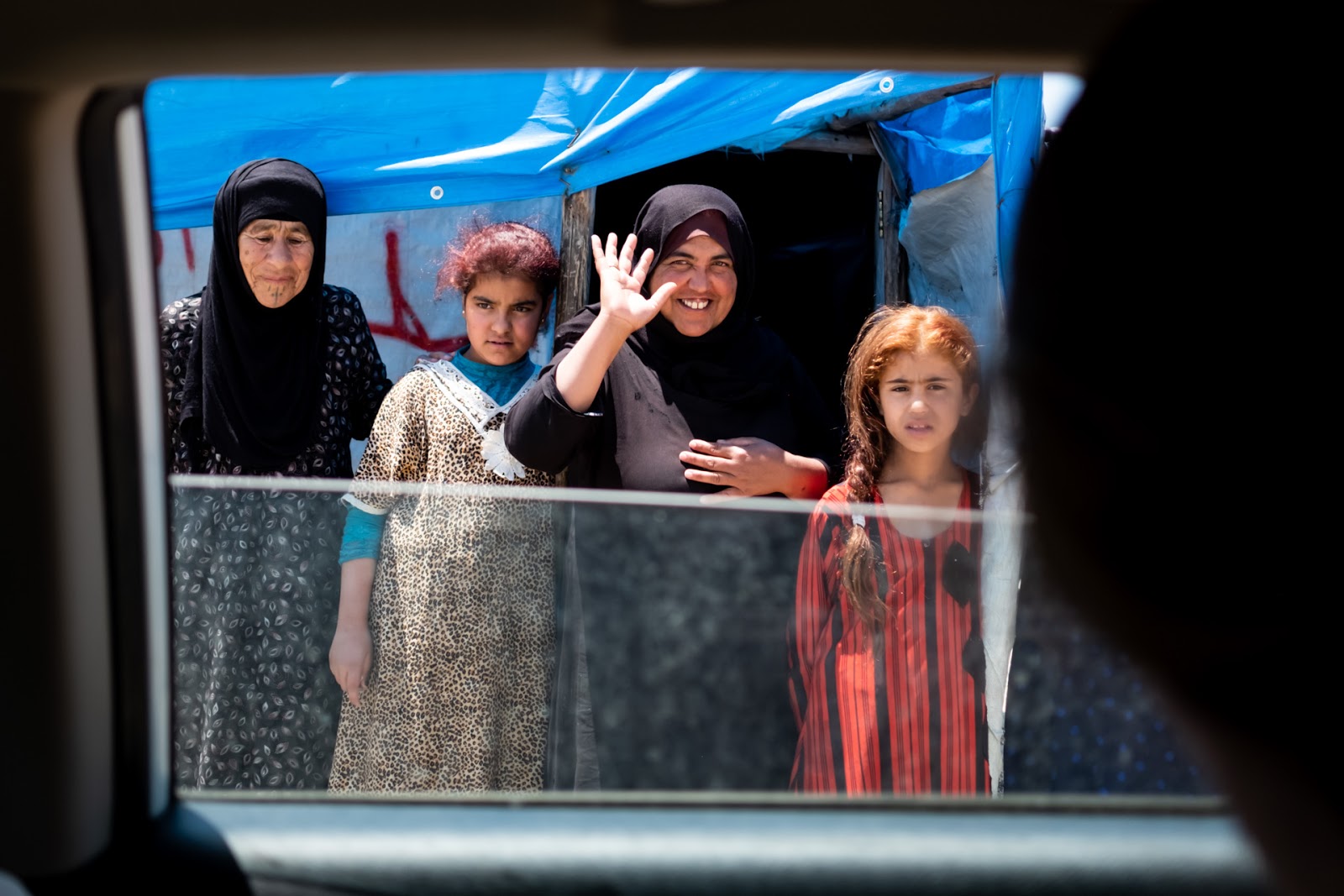
When you help refugee women start a business, you give them a way to feed, clothe and educate their children, to make their families’ lives better. And you also give them the power to choose how they live their lives, to shape their own futures, and their children’s futures. When you give to women like Kawakep, you transform lives.

